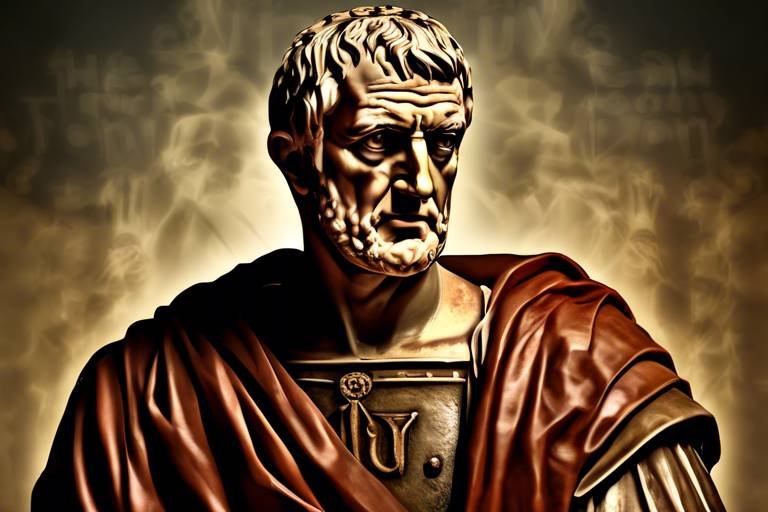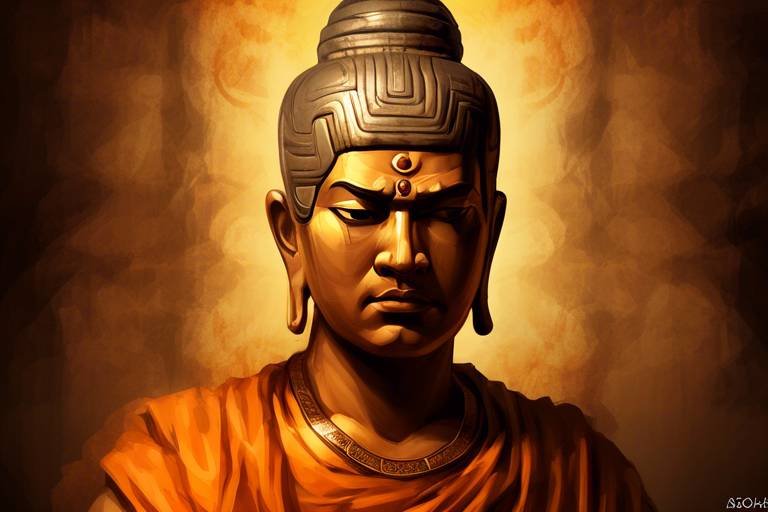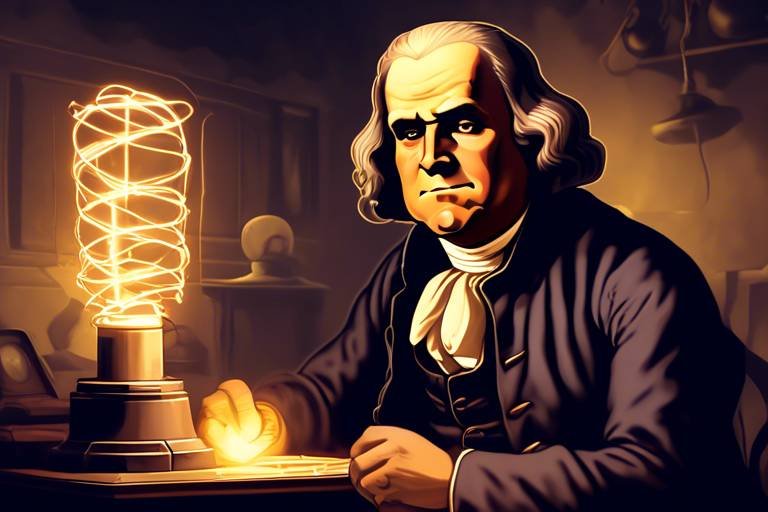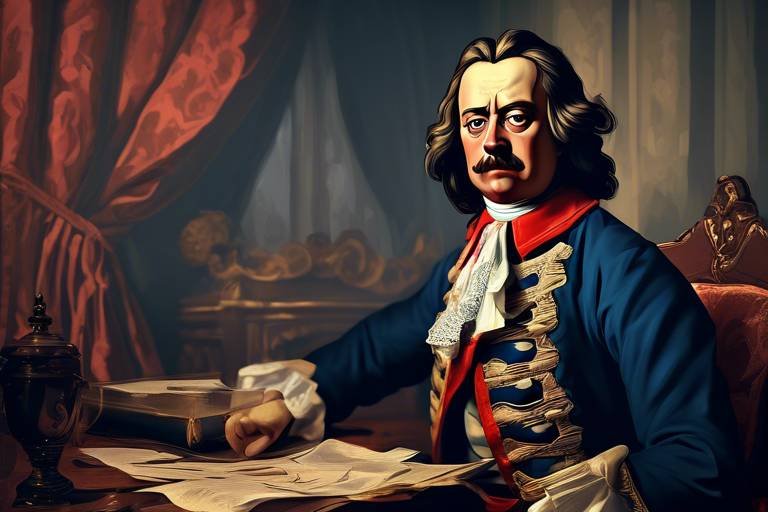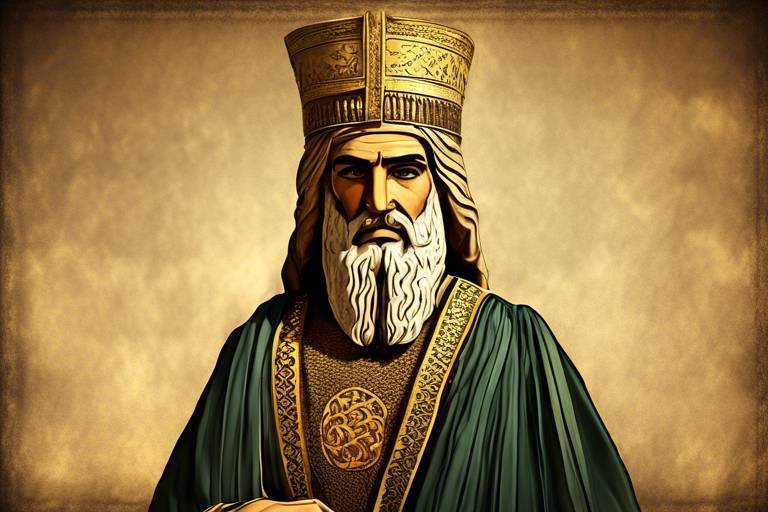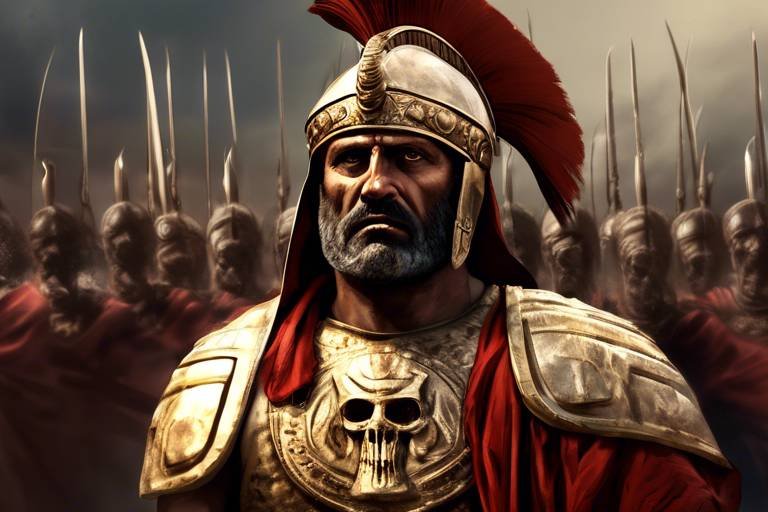Kaiser Wilhelm II: The Last Emperor of Germany
Kaiser Wilhelm II, the final Emperor of Germany, was a figure whose reign left a lasting impact on the course of history. Born on January 27, 1859, Wilhelm II ascended to the throne in 1888 following the death of his father, Emperor Frederick III. His upbringing was marked by a complex relationship with his grandmother, Queen Victoria of the United Kingdom, whose influence shaped his early years.
Upon becoming Emperor, Wilhelm II pursued an ambitious agenda of domestic reforms aimed at modernizing Germany and strengthening its position on the world stage. However, his autocratic rule often clashed with the German parliament, leading to political tensions that would define his leadership. Wilhelm II's militaristic policies and aggressive foreign relations further fueled controversy both at home and abroad.
As World War I erupted in 1914, Kaiser Wilhelm II played a significant role in shaping Germany's military strategy and alliances. The devastating consequences of the war, culminating in Germany's defeat in 1918, ultimately led to Wilhelm II's abdication and exile in the Netherlands. Despite his efforts to remain politically active from afar, his influence waned in the post-war era.
In exile, Wilhelm II continued to be a polarizing figure, with historians and scholars debating his legacy and the extent of his responsibility for the war. His leadership style, characterized by a mix of authoritarianism and grandiosity, has been a subject of ongoing historical analysis. The controversies surrounding his reign and the long-term impact of his rule continue to shape discussions of German history.
Historians have offered varying perspectives on Kaiser Wilhelm II, with some highlighting his contributions to Germany's economic and cultural development, while others emphasize his role in the escalation of tensions that led to World War I. The debates surrounding his legacy reflect the complexity of his reign and its repercussions on the course of European history.

Early Life and Ascension to the Throne
Wilhelm II, born Friedrich Wilhelm Viktor Albert in 1859, was the eldest grandchild of Queen Victoria of the United Kingdom. His early life was marked by a tumultuous relationship with his parents, Emperor Frederick III and Empress Victoria. Despite his difficult upbringing, Wilhelm II ascended to the German throne in 1888 following the untimely death of his father. At the age of 29, he became the Emperor of Germany and King of Prussia, inheriting a powerful and complex empire.
Wilhelm II's relationship with his grandmother, Queen Victoria, played a significant role in shaping his worldview and political ambitions. Known for his grandiose personality and desire for power, Wilhelm II sought to assert his authority and leave a lasting mark on the German Empire. His ascension to the throne marked a new era in German history, characterized by his ambitious vision for the country's future.
As Emperor, Wilhelm II faced numerous challenges, including navigating the intricate web of European politics and balancing the interests of various factions within the German government. His early years on the throne were marked by a series of political struggles and power struggles, as he sought to consolidate his authority and establish his place as the leader of a rapidly industrializing nation.
Despite his efforts to modernize Germany and strengthen its position on the world stage, Wilhelm II's autocratic tendencies and impulsive decision-making often led to conflict with his advisors and political opponents. His leadership style was characterized by a mix of charisma and unpredictability, which both endeared him to his supporters and alienated his critics.
Wilhelm II's ascension to the throne marked the beginning of a tumultuous period in German history, as the country grappled with rapid industrialization, social change, and growing tensions with its European neighbors. His early years as Emperor set the stage for the controversial and turbulent reign that would define his legacy as the last Emperor of Germany.

Domestic Policies and Political Challenges
During his reign, Kaiser Wilhelm II implemented a series of domestic policies that aimed to solidify his authority and strengthen the German Empire. One of his key initiatives was the expansion of the German military, particularly the navy, in an effort to assert Germany's power on the world stage. This militaristic approach not only fueled tensions with other European powers but also strained Germany's economy due to the high costs of maintaining a large military force.
Wilhelm II's autocratic rule often clashed with the German parliament, the Reichstag, leading to political challenges and frequent power struggles. His desire for absolute authority and his belief in the divine right of kings clashed with the growing demands for democracy and parliamentary representation within Germany. This power struggle between the emperor and the elected representatives of the people created a volatile political environment within the country.
Furthermore, Wilhelm II's aggressive foreign policy decisions, such as the pursuit of colonial territories and alliances with other imperial powers, further complicated Germany's political landscape. These actions sometimes led to diplomatic tensions and conflicts that strained Germany's relationships with other nations, contributing to the growing instability in Europe leading up to World War I.
Despite his efforts to centralize power and assert his authority, Wilhelm II faced increasing opposition from various political factions within Germany. The Social Democratic Party, in particular, gained significant support among the working class due to their advocacy for social reforms and opposition to the emperor's autocratic rule. This opposition further exacerbated the political challenges faced by Wilhelm II during his reign.

Militarism and Foreign Relations
Wilhelm II's reign was marked by a fervent embrace of militarism and an aggressive approach to foreign relations. His desire to assert Germany's power on the world stage led to the implementation of a robust naval expansion program, challenging the dominance of the British Royal Navy. This militaristic stance not only aimed to showcase Germany's strength but also to secure its position as a formidable player in international affairs.
Wilhelm II's foreign relations strategy was characterized by the formation of alliances that aimed to bolster Germany's position in Europe. The Triple Alliance with Austria-Hungary and Italy, for instance, was a key component of his diplomatic efforts. These alliances were crucial in shaping the geopolitical landscape of the time and solidifying Germany's place among the great powers of Europe.
Furthermore, Wilhelm II's aggressive foreign policy stance and military ambitions often clashed with the interests of other major powers, particularly Britain and France. Tensions escalated as Germany's militarization efforts threatened the delicate balance of power in the region, setting the stage for the escalating rivalries that ultimately culminated in the outbreak of World War I.
The militarism and assertive foreign relations pursued by Kaiser Wilhelm II during his reign had far-reaching consequences, setting the stage for the tumultuous events that would unfold during World War I and ultimately contribute to the downfall of the German Empire.

World War I and the Downfall of the Empire
World War I was a defining moment in Kaiser Wilhelm II's reign, marking the beginning of the downfall of the German Empire. As the war unfolded, Wilhelm II's aggressive foreign policy and militaristic ambitions came under intense scrutiny. His decision to pursue a policy of unrestricted submarine warfare, which led to the sinking of civilian ships, including the Lusitania, drew the ire of the international community and ultimately dragged Germany into a global conflict.
The war effort placed immense strain on Germany's resources and population, leading to widespread suffering and discontent among the German people. As the conflict dragged on, it became increasingly clear that Germany was facing a formidable coalition of enemies, including France, Britain, and eventually the United States. The tide turned against Germany as the Allied forces gained the upper hand on the battlefield.
Despite initial military successes, the German army found itself on the defensive, facing mounting casualties and dwindling supplies. The entry of the United States into the war further tilted the balance against Germany. The signing of the armistice in November 1918 spelled the end of the war and the beginning of the German Empire's collapse.
Under pressure from his military commanders and facing widespread unrest at home, Kaiser Wilhelm II abdicated the throne on November 9, 1918, effectively bringing an end to his reign as the German Emperor. The abdication paved the way for the establishment of the Weimar Republic and the eventual signing of the Treaty of Versailles, which imposed harsh terms on Germany and laid the groundwork for future conflicts.

Exile and Later Years
After his abdication in 1918, Kaiser Wilhelm II found himself in a precarious position. With Germany in turmoil and facing defeat in World War I, the emperor sought refuge in the neutral Netherlands. His exile in the Dutch countryside marked the end of his reign as the last German Emperor. Despite being removed from power, Wilhelm II continued to harbor ambitions of returning to Germany and reclaiming his throne.
During his time in exile, Wilhelm II remained a controversial figure, with some viewing him as a scapegoat for Germany's defeat in the war, while others saw him as a symbol of the old imperial order. The former emperor's attempts to influence German politics from afar were met with mixed reactions, as many in Germany sought to move past the legacy of his rule and establish a new democratic government.
Wilhelm II's later years in exile were marked by a sense of isolation and nostalgia for the glory days of the German Empire. Despite his longing for a return to power, the former emperor ultimately spent the rest of his life in the Netherlands, far removed from the political upheaval and social change taking place in Germany.
The legacy of Kaiser Wilhelm II as the last emperor of Germany remains a topic of historical debate and discussion. His exile and later years serve as a poignant reminder of the fall of the German Empire and the transition to a new era in German history. The controversies surrounding Wilhelm II's leadership continue to shape perceptions of his reign and its impact on the course of European history.

Historical Controversies and Legacy
When delving into the historical controversies and legacy of Kaiser Wilhelm II, one cannot ignore the polarizing nature of his leadership and the lasting impact he had on German history. Wilhelm II's reign was marked by a series of decisions and actions that continue to spark debates among historians and scholars to this day.
One of the most significant controversies surrounding Kaiser Wilhelm II is his role in the outbreak of World War I. While some argue that his aggressive foreign policy and militaristic approach directly contributed to the conflict, others point to a complex web of alliances and tensions in Europe at the time. The debate over Wilhelm II's responsibility for the war remains a contentious issue in historical circles.
Furthermore, Wilhelm II's autocratic rule and strained relationship with the German parliament have also been subjects of historical scrutiny. His tendency towards authoritarianism and his dismissal of parliamentary input led to political challenges and internal strife within Germany. The repercussions of his governance are still felt in discussions about the balance of power between the monarchy and the government.
Additionally, the legacy of Kaiser Wilhelm II as the last Emperor of Germany continues to be a topic of debate. Some view him as a symbol of a bygone era of imperial grandeur, while others criticize his leadership for its detrimental effects on the country. The question of whether Wilhelm II's actions ultimately hastened the downfall of the German Empire remains a point of contention among historians.
In assessing the historical controversies and legacy of Kaiser Wilhelm II, it is essential to consider the multifaceted nature of his reign and the complexities of the time in which he ruled. By examining the various perspectives and interpretations of his leadership, we gain a deeper understanding of the impact he had on Germany and the broader historical narrative.

Assessment of Leadership Style
When assessing Kaiser Wilhelm II's leadership style, one cannot overlook his penchant for impulsiveness and grandiosity. His desire to assert his authority often led to hasty decisions that had far-reaching consequences. Wilhelm II's leadership was characterized by a mix of authoritarianism and insecurity, resulting in a leadership style that was erratic and unpredictable.
One of the key aspects of Wilhelm II's leadership style was his reliance on a select group of advisors, known as the "kitchen cabinet." These advisors, often chosen based on personal loyalty rather than expertise, influenced Wilhelm II's decisions and policies. This insular approach to governance limited the diversity of opinions and perspectives available to the emperor, contributing to a lack of critical thinking and strategic planning.
Wilhelm II's leadership style also reflected his belief in the divine right of kings and the importance of maintaining a strong, centralized monarchy. This authoritarian streak clashed with the growing demands for democracy and parliamentary representation in Germany, leading to tensions between the emperor and the political establishment.
Furthermore, Wilhelm II's militaristic ambitions and aggressive foreign policy decisions played a significant role in shaping Germany's position on the world stage. His pursuit of a powerful navy and alliances with other European powers contributed to the escalating tensions that eventually led to World War I.
In hindsight, the assessment of Kaiser Wilhelm II's leadership style is one of a leader who struggled to adapt to the changing political landscape of the time. His inability to navigate the complexities of a rapidly evolving world ultimately contributed to the downfall of the German Empire and his own abdication in 1918.

Historiographical Perspectives
When examining the historiographical perspectives on Kaiser Wilhelm II, historians have presented a wide array of interpretations regarding his legacy and the impact of his reign on German history. Some scholars view Wilhelm II as a reckless leader whose aggressive foreign policy and militaristic ambitions directly contributed to the outbreak of World War I. They argue that his authoritarian rule and erratic decision-making led to diplomatic tensions and ultimately to the catastrophic conflict that engulfed Europe.
Conversely, other historians offer a more nuanced assessment of Wilhelm II, highlighting the complexities of his leadership style and the broader political context in which he operated. They argue that while Wilhelm II certainly played a significant role in shaping Germany's foreign policy and military strategy, he was also influenced by a range of advisors and political forces within the country. This perspective emphasizes the interconnected nature of European politics at the time and the intricate web of alliances and rivalries that defined the era.
Moreover, the debate over Wilhelm II's legacy extends beyond his actions during World War I to encompass his broader impact on German society and politics. Some historians argue that Wilhelm II's autocratic rule and confrontational approach exacerbated existing tensions within Germany, leading to internal divisions and social unrest. They point to his strained relationship with the German parliament and his attempts to centralize power as factors that contributed to the destabilization of the country.
Overall, the historiographical perspectives on Kaiser Wilhelm II reflect the ongoing scholarly debate surrounding his reign and its significance in German history. By exploring the diverse interpretations and conflicting narratives surrounding Wilhelm II, historians continue to grapple with the complex legacy of the last German Emperor and the enduring impact of his rule on the nation.
Frequently Asked Questions
- What were Kaiser Wilhelm II's major accomplishments during his reign?
Kaiser Wilhelm II's major accomplishments during his reign include significant advancements in industrialization, the expansion of the German navy, and the implementation of social welfare programs. He also played a key role in shaping Germany's foreign policy and establishing alliances that influenced the country's position in Europe.
- What led to Kaiser Wilhelm II's exile in the Netherlands?
Kaiser Wilhelm II's exile in the Netherlands followed Germany's defeat in World War I and his abdication as Emperor. The Treaty of Versailles, which placed blame for the war on Germany, led to his exile as part of the conditions imposed on the country. Wilhelm II sought refuge in the Netherlands, where he spent the remainder of his life in relative seclusion.
- How is Kaiser Wilhelm II's leadership style viewed by historians?
Kaiser Wilhelm II's leadership style is viewed by historians as controversial and complex. While some praise his efforts in modernizing Germany and promoting economic growth, others criticize his aggressive foreign policy and autocratic tendencies. Historians continue to debate the extent of his responsibility for World War I and the long-term impact of his reign on German history.


